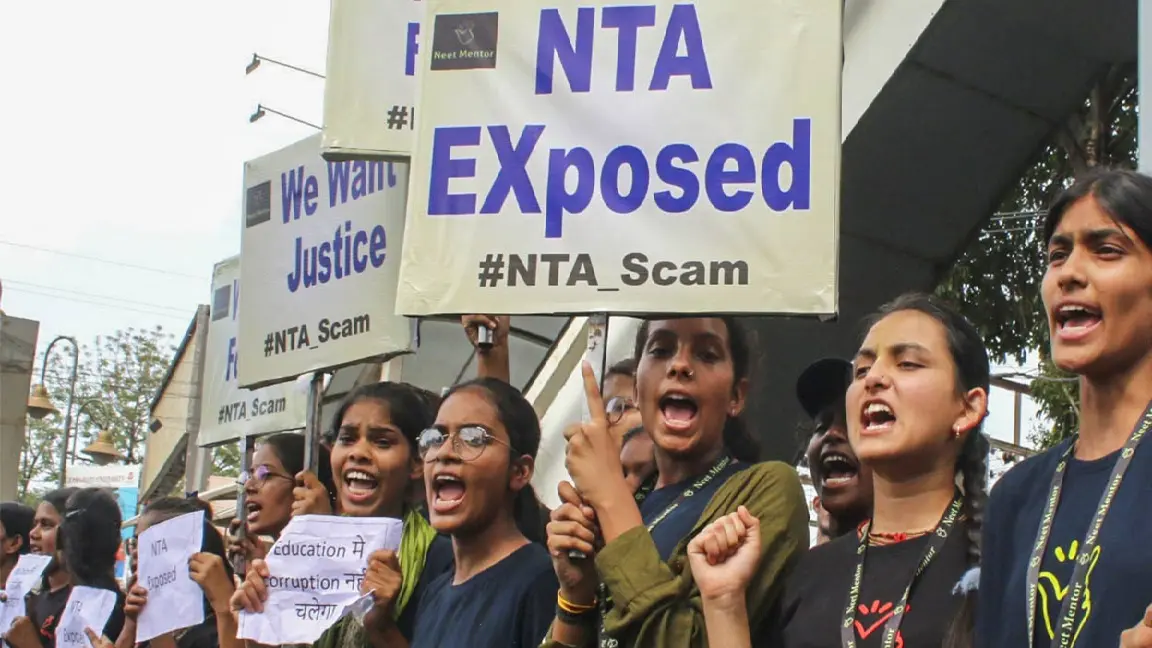Numerous inconsistencies in the NEET-UG’s behaviour have been exposed, and some people have been taken into custody. Important tests such as the CSIR-UGC NET, National Common Entrance Test (NCET), and National Eligibility Test (NET) were cancelled or rescheduled.
The administration has reasoned to believe that the cancelled tests damaged the integrity of the examination process. It has requested a CBI investigation into the alleged malpractices and fired the chairman of the National Testing Agency (NTA), which is responsible for conducting the examinations.
It has also established a committee to look into how the NTA operates and provide recommendations for how to run exams fairly. A legislation prohibiting the use of unfair exam techniques has been implemented as a result. At first, the administration attempted to downplay the irregularities and protect the NTA and its head. Issues with these exams have been reported for more than just this year.

Source: Education Post
Issues such as impersonation, erroneous questions, and inaccurate scores have always existed and were written off as random problems that arise in lengthy exams.The NTA was established in 2017 with the goal of developing a worldwide examination system. It is one of the biggest testing organisations in the world, administering exams to millions of students annually.Making sure that there were no irregularities in the way the exams were administered was one of its main goals.
Another was prompt and effective testing administration, which would support the seamless operation of the entire educational system. However, the NTA has created the very issues that it was supposed to address. Examining how well an NTA-run centralised examination system works in India, a country with a wide range of educational boards and institutions, is necessary.
Source: TIMES NOW
The ‘one country, one exam’ rule, which stems from the politics of the Bharatiya Janata Party (BJP), is represented by the NTA. Universities all throughout the world are accustomed to making decisions regarding their academic affairs.The inclusion of PhD admissions in the central system was not discussed with universities. Centralised assessments, such as the NEET, exhibit a bias in favour of metropolitan pupils while marginalising individuals from rural and lower-class backgrounds.
On these tests, the tutoring sector prospers. The NEET debacle demonstrates how a small number of people—students or not—from specific regions of the nation can interfere with the lives and academic plans of 2.5 million students. Given the concerns that have surfaced, a reassessment of the system is necessary.
What do you think about this? Comment below.

